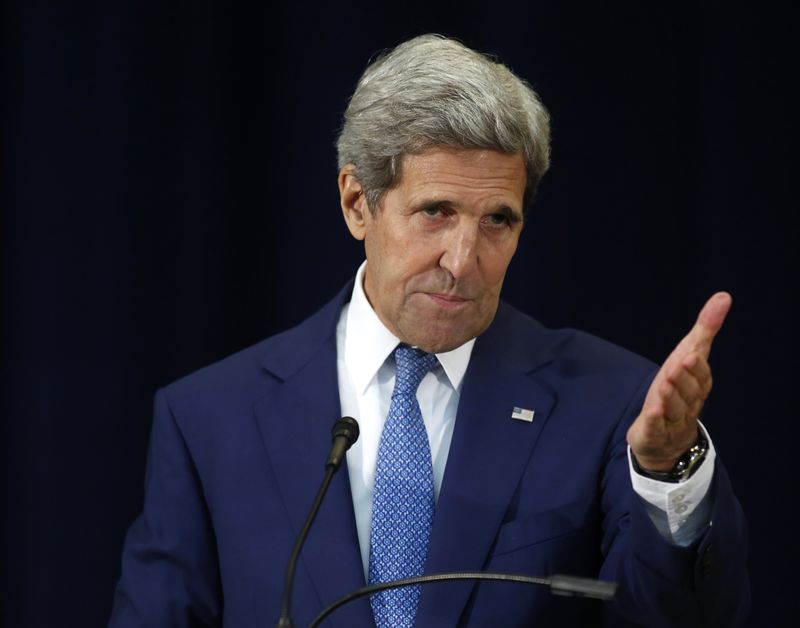WASHINGTON (Reuters) - U.S. Secretary of State John Kerry will travel to Egypt and the Gulf next week for talks on the recent nuclear deal between major powers and Iran and the fight against Islamic State militants, then he will head to Southeast Asia, where countries share U.S. concerns about China's pursuit of territorial claims.
Kerry will visit Cairo on Aug. 2 for a session of the U.S.-Egypt Strategic Dialogue, a forum that "reaffirms the United States' longstanding and enduring partnership with Egypt," the State Department said on Monday.
On Aug. 3 he will travel to Doha to meet with counterparts from the Gulf Cooperation Council, which comprises Saudi Arabia, the United Arab Emirates, Bahrain, Kuwait, Oman and Qatar, for talks U.S. officials say will concentrate on the Iran nuclear deal, the war in Syria and the battle against Islamic State.
In Doha, Kerry will also meet his Russian counterpart Sergei Lavrov.
Kerry said on Friday that in his talks with Lavrov he planned to discuss combating Islamic State militants and the role Iran could play after Turkey agreed to step up its effort and to allow U.S. jets launch air strikes from a base near the Syrian border.
Russia has been trying to bring about rapprochement between the Syrian government and regional states including Saudi Arabia and Turkey, to forge an alliance to fight Islamic State.
On Aug. 4 Kerry will visit Singapore for talks that will coincide with the city state's 50th independence anniversary.
He will deliver a speech there on U.S. trade and investment in East Asia, before a stop in Malaysia from Aug. 4-6 for meetings with the 10 Association of Southeast Asian Nations, many of which share U.S. concerns about China's increasingly assertive pursuit of territorial claims in the region.
Kerry will visit Hanoi from Aug. 6-8, where he will participate in an event to mark the 20th anniversary of the establishment of diplomatic relations after the Vietnam War.
Malaysia, Vietnam, Singapore and their fellow ASEAN member Brunei are U.S. negotiating partners in a 12-nation Trans-Pacific Partnership trade pact, which Washington hopes to conclude this year.
Vietnam, Malaysia, Brunei and another ASEAN country, the Philippines, are also rival claimants along with Taiwan to territory China claims in the South China Sea.

Last week, U.S. Assistant Secretary of State for East Asia Daniel Russel said Kerry would repeat a call in Malaysia for a halt to land reclamation and militarization of disputed South China Sea territory.
